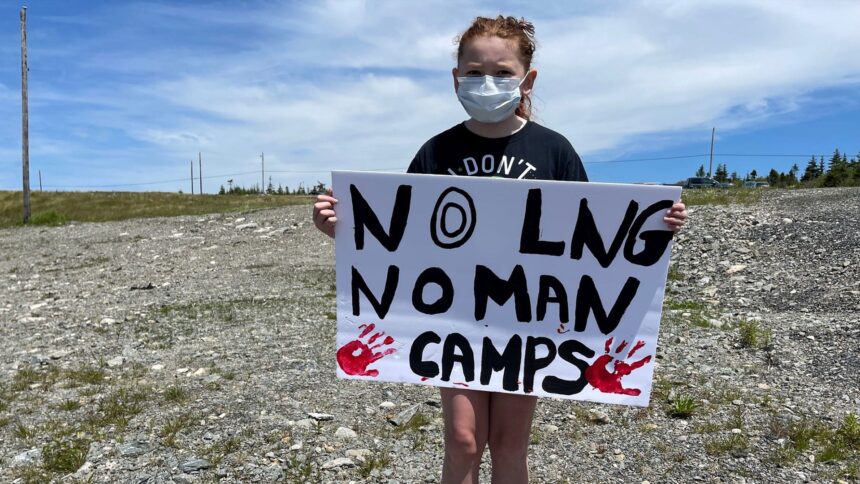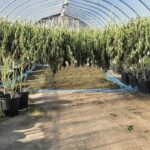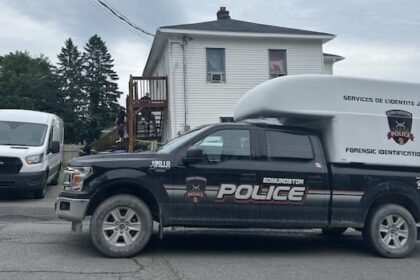A social justice activist from British Columbia is calling for criminal record checks for anyone hired to work on any federally approved “major project.” Gladys Radek, the co-founder of Walk4Justice and an advocate for justice for Missing and Murdered Indigenous Women and Girls (MMIWG) in Canada, says the criminal records of people hired directly by an LNG company or their sub-contractors should be considered before they’re brought on board. “I don’t care how much it costs you,” Radek says in a telephone interview with APTN News. “I know…going for custody for my granddaughter, I had to do a criminal record check, and it cost me fifty bucks. If you want to go into an area that is unknown to you, you need to get that criminal record check.” The issue is top of mind for Radek with the recent visit of Prime Minister Mark Carney to Terrace, B.C. where he announced two more potential “nation-building” projects in the region. They’ve been referred to the federal Major Projects Office to be considered for fast-track approval. One is Ksi Lisims LNG project on Pearse Island, along the northwest coast of B.C., close to the Alaska border. The Nisga’a First Nation is a partner in the project along with Texas-based Western LNG and Rockies LNG Limited. The other is the North Coast Transmission Line. Of Ksi Lisims, Carney says the floating export facility could add $4 billion a year to the nation’s GDP, while B.C. Premier David Eby touts the creation of “800 jobs during construction, more than 200 jobs ongoing at the site, (and) $17 billion in contribution to the Canadian economy over the lifetime of the project.” It’s the influx of workers, mostly men, that concerns Radek most. “We’ve got Kitimat LNG (operated by LNG Canada) here too, and yet we still have, you know, young girls that are hitchhiking to Kitimat to meet their so-called boyfriends that are working at Kitimat LNG. You know, there’s no protection for us,” Radek says. Read more: B.C. suspect denied bail in Vernon court New ‘Circle’ to guide safety of MMIWG2S+ during resource extraction projects She points to the hiring of Curtis Sagmoen by LNG Canada for the Kitimat project in 2018. Sagmoen who died April 8, 2025, was convicted in a number of cases for violent crimes against sex workers in British Columbia’s Shuswap and North Okanagan areas. “…he was like Teflon, but he got hired up in Kitimat. He got hired for LNG, and when I got wind of that, we ended up having him sent back home because we were telling LNG and their so-called subcontractors that they need to do criminal record checks on these people that are going to these camps.” Radek says. “And LNG tried to blow it off and say, well, it wasn’t us. It was subcontractors. And I’m saying, you know what? I don’t care if there’s subcontractors… they still need to get criminal record checks to send these men into our communities.” “Man-camps” set up by LNG and extraction companies to temporarily house workers have long been a concern of organizations such as Amnesty International, the Firelight Group and those who work with exploited women and girls. Firelight, an Indigenous-led research company, published a report in 2017 that studied the effects of industrial camps in remote areas near First Nations in different parts of Canada. An overview of the report says social and cultural risks of “close location of industrial camps” to communities often falls under the radar of planning processes. The report was based on key informant interviews. It found women and children are subject to what it calls “a risk pile up” combined with existing socio-economic and historical factors. It said victims reported increased rates of sexual assault, addictions, sexually transmitted infections and family violence when a construction camp operated nearby. The referral of Ksi Lisims to the federal government’s Major Projects Office for consideration does not ultimately mean it will be approved. But, it’s still concerning to Radek. “It’s just leaving us really uncomfortable, and it’s getting scary now too…this is going to be bringing in thousands of men, you know, from different areas. And there’s no training. There’s nothing that can protect us,” she says. Tags: Activist, B.C. MMIWG, British Columbia, Canada LNG, criminal record checks, firelight group, Gladys Radek, Kitimat, Ksi Lisims LNG, major projects, man camps Continue Reading
Potential influx of workers at Ksi Lisims LNG project concerning to MMIWG activist

Leave a Comment










